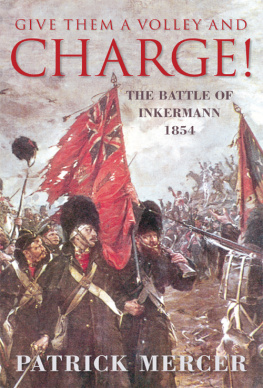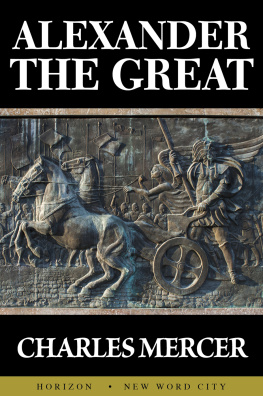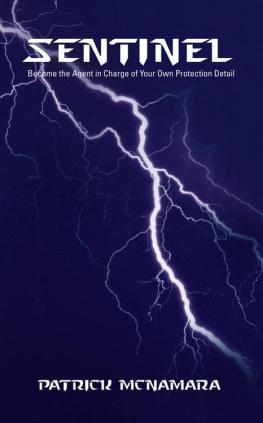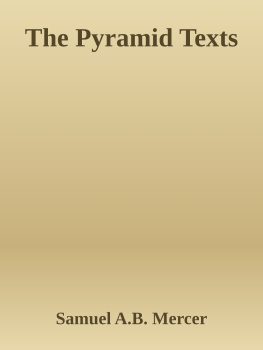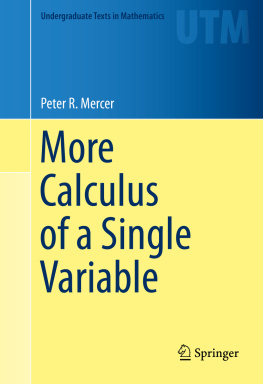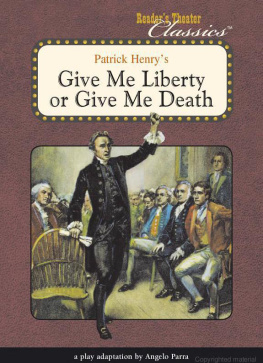Patrick Mercer - Give Them a Volley and a Charge!
Here you can read online Patrick Mercer - Give Them a Volley and a Charge! full text of the book (entire story) in english for free. Download pdf and epub, get meaning, cover and reviews about this ebook. year: 2011, publisher: The History Press, genre: Non-fiction. Description of the work, (preface) as well as reviews are available. Best literature library LitArk.com created for fans of good reading and offers a wide selection of genres:
Romance novel
Science fiction
Adventure
Detective
Science
History
Home and family
Prose
Art
Politics
Computer
Non-fiction
Religion
Business
Children
Humor
Choose a favorite category and find really read worthwhile books. Enjoy immersion in the world of imagination, feel the emotions of the characters or learn something new for yourself, make an fascinating discovery.
- Book:Give Them a Volley and a Charge!
- Author:
- Publisher:The History Press
- Genre:
- Year:2011
- Rating:5 / 5
- Favourites:Add to favourites
- Your mark:
- 100
- 1
- 2
- 3
- 4
- 5
Give Them a Volley and a Charge!: summary, description and annotation
We offer to read an annotation, description, summary or preface (depends on what the author of the book "Give Them a Volley and a Charge!" wrote himself). If you haven't found the necessary information about the book — write in the comments, we will try to find it.
Give Them a Volley and a Charge! — read online for free the complete book (whole text) full work
Below is the text of the book, divided by pages. System saving the place of the last page read, allows you to conveniently read the book "Give Them a Volley and a Charge!" online for free, without having to search again every time where you left off. Put a bookmark, and you can go to the page where you finished reading at any time.
Font size:
Interval:
Bookmark:
Give Them a Volley and Charge!
The Battle of Inkermann, 1854

THE BATTLE OF INKERMANN, 1854

by
Patrick Mercer

First published in 1998
Spellmount an imprint of
The History Press
The Mill, Brimscombe Port
Stroud, Gloucestershire, GL5 2QG
www.thehistorypress.co.uk
This ebook edition first published in 2011
All rights reserved
Patrick Mercer 1998, 2008, 2011
The right of Patrick Mercer, to be identified as the Author of this work has been asserted in accordance with the Copyrights, Designs and Patents Act 1988.
This ebook is copyright material and must not be copied, reproduced, transferred, distributed, leased, licensed or publicly performed or used in any way except as specifically permitted in writing by the publishers, as allowed under the terms and conditions under which it was purchased or as strictly permitted by applicable copyright law. Any unauthorised distribution or use of this text may be a direct infringement of the authors and publishers rights, and those responsible may be liable in law accordingly.
EPUB ISBN 978 0 7524 7528 8
MOBI ISBN 978 0 7524 7527 1
Original typesetting by The History Press
The battle of Inkermann lasted for less than twelve hours, was one of the bloodiest single engagements in Europe between 1815 and 1914, and saw the hopes of the British, French and Turkish allies for a swift and lasting lesson to the Tsar perish. Now the battle is largely forgotten, despite the fact that in Victorian folklore its memory shone brighter than any of the other engagements of the whole Crimean War. Today The Soldiers Battle is eclipsed by the Charge of the Light Brigade a defeat that took less than half an hour and in which the casualties were counted in hundreds rather than thousands and the memory of a nurse called Florence Nightingale who visited the Crimea only once. It is a battle that almost defies description, fought in fog over deeply broken ground and to no particular plan or strategy, a series of disparate and bitter mles rather than a battle proper. To try to piece it together is difficult but fascinating; this probably accounts for the comparatively few accounts that have been written of it. To grasp it, however, the context of the Crimean War as a whole needs to be understood.
To precis the muddled circumstances, the frustrated ambitions and the jingoism that led to the War is almost as difficult as an account of Inkermann. In brief, however, its origins lay in the nineteenth-century developments of industrialism, nationalism and imperialism, changes in the European status quo brought about by the revolutions of 18489, British-Russian rivalry, chronic RussoTurkish hostility, the resurgence of French Bonapartism, and the increasing divergence of Russia and western Europe. The fighting ought to be seen as two separate wars; that between Russia and Turkey around the Danube, which preceded the war fought against Russia by the coalition of France, Britain and Turkey in the Baltic as well as the Crimea.
Britain, France and Russia all had a vital interest in the future of Turkey, the vexed Eastern Question, for Turkeys Ottoman Empire bordered Russian territories, was contiguous to Frances north African Empire and dominated the overland route to British India and her possessions in the east. Furthermore, Turkeys opposition to Russia suited Britain, for she lay in an ideal position to neutralise any Russian threat to India or Persia, such as the Afghan War of 183942.
Austria also had a crucial part to play in the equation, being Turkeys and Russias most powerful neighbour. However, the Tsar had restored her Hungarian kingdom to Austrias young Emperor, and whilst she looked askance at Russian expansion into Turkish territories across the lower Danube, her debt of gratitude effectively neutralised her. Similarly, whilst Prussia was emerging as a new power, her king was related to the Tsar by marriage and had no direct interest in the Eastern Question. Thus, the Tsars expansionist ambitions depended principally upon a lack of opposition from Britain and France. Britain, however, stood to gain by any division of Turkish territory and she, like Russia, was alarmed by Louis Napoleons assumption of near dictatorial powers after the coup of 1851; new Bonapartism was attractive to neither.
Another dimension was added to the Tsars desire for territory and access to the Mediterranean in the shape of the 13 million Greek Orthodox subjects of the Turks. In 1829 Greece had fought for her independence from Turkey with the aid of Russia, and since then the Tsar had seen himself as the protector of those Christians still under Turkish rule. It was a lever that he could use as much or as little as he chose, and in 1850 when Catholic and Greek Orthodox monks squabbled over matters of precedence in the Holy Land, he chose to listen to the appeals of the latter. The Catholics sought the intercession of Louis Napoleon; the Sultan, meanwhile, within whose territories the Holy Land lay, found in favour of the Catholics in December 1852. Whilst on the surface it seemed to be a matter of no great consequence, the issue infuriated the Tsar and drew France, now as a direct supporter of Turkey, into clear conflict with him.
The Tsar judged that it would now be possible to fan the flames of this dispute and, with tacit British support or, at least, no opposition, the long-sought-after dismemberment of Turkey could begin in earnest.
In early 1853 he approached London and reminded the Prime Minister of the offer he had made in 1844 when such an arrangement had last been broached, namely that Britain would gain Egypt if she allowed Russia to pick at Turkey unhindered. Misjudging Britains lukewarm response and being unaware of hardening British opinion, the Tsar despatched Menshikov to Turkey to deliver ultimata. Britains influential ambassador in Turkey, Redciffe, gave every assurance to the Sultan that Britain would stand by him and he refused either to restore the Orthodox monks privileges or to allow the Tsar to establish a protectorate over all of his Christian subjects. A French naval squadron had already been despatched to Turkish waters, and despite its being joined by an equivalent British force, Russian troops marched into the long disputed Danubian principalities of Moldavia and Wallachia in July 1853.
Despite Austrias attempts at mediation in Vienna, Turkey declared war on 5 October. Crossing the Danube into Wallachia, the Turks initially enjoyed some successes, but Russian counter-attacks soon occurred, the most notable, in terms of what happened later in the Crimea, being that at Oltenitsa on 4 November. The battle itself was bloody and probably rates as a tactical victory for the Turks. Strategically, however, it marked the turning point in the Turkish advance for having been mauled, they feared the approach of Russian reinforcements and fell back across the Danube. The Russian commander was General P.A. Dannenberg; one year and one day later he and the remnant of his 8,000-strong division were to see action again, this time against the British at Inkermann.
Success on land was added to at sea on 30 November when Admiral Nachimov (whom we will also meet later in the Crimea) sank a Turkish flotilla at Sinope with almost no loss to himself but killing 4,000 Turks. It was a legitimate act of war, but it served to push the divided British coalition Cabinet over the edge, which until then had allowed the British fleet no more latitude than to remain at anchor off Constantinople. Sinope caused the British to agree to a French plan to move a combined fleet into the Black Sea and to despatch troops to the Mediterranean where they could be better poised. To add weight to this, in March a joint ultimatum was sent to St Petersburg demanding a withdrawal from Moldavia and Wallachia. When this was not forthcoming, both Britain and France declared war.
Next pageFont size:
Interval:
Bookmark:
Similar books «Give Them a Volley and a Charge!»
Look at similar books to Give Them a Volley and a Charge!. We have selected literature similar in name and meaning in the hope of providing readers with more options to find new, interesting, not yet read works.
Discussion, reviews of the book Give Them a Volley and a Charge! and just readers' own opinions. Leave your comments, write what you think about the work, its meaning or the main characters. Specify what exactly you liked and what you didn't like, and why you think so.

